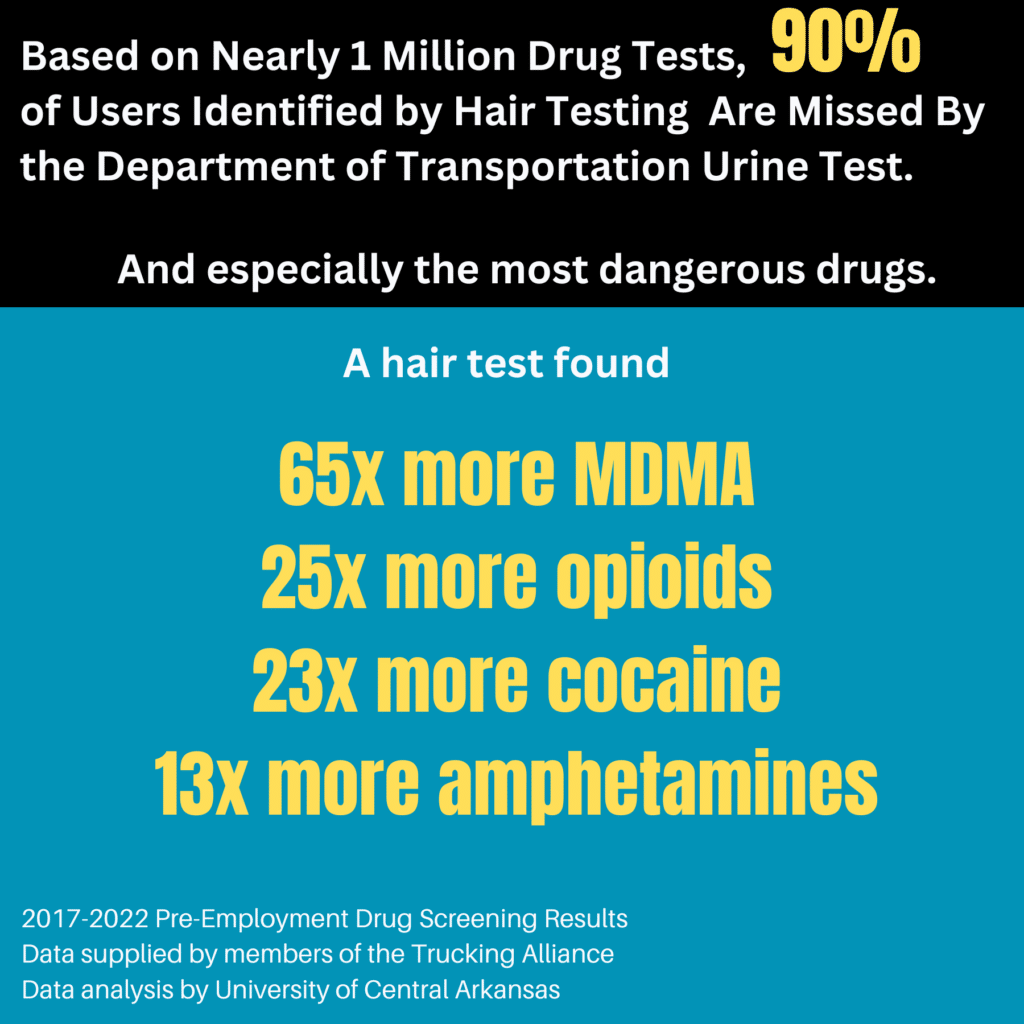New study shows hard drug users evade DOT tests at astounding rate.
Trucking Alliance and University of Central Arkansas find extremely wide gaps in detection capabilities for hair drug testing and DOT urinalysis
THE STUDY
Researchers at the University of Central Arkansas analyzed a dataset comprised of 936,872 pre-employment urine and hair drug screens on licensed commercial truck drivers submitted by member carriers of the Trucking Alliance.
WHO IS THE TRUCKING ALLIANCE?
The Trucking Alliance is a coalition of transportation industry leaders in the United States who are committed to advancing safety, technology, and regulatory reforms within the trucking sector. Formed in 2010, the alliance consists of a group of influential carriers and freight transportation companies, aiming to enhance the overall safety and efficiency of the trucking industry.
One of the key objectives of the Trucking Alliance is to eliminate drug and alcohol use among commercial truck drivers, and they are users of, and vocal advocates for, hair drug testing as a deterrent to drug use. As a result, they actively engage with lawmakers, regulatory agencies, and other industry stakeholders for acceptance of hair testing by DOT.
Because the Department of Transportation requires urine testing objective was to compare the effectiveness of hair drug testing and urinalysis in detecting various illicit substances. The study covered drug test results from 2017 to 2022.
WHAT DID THE RESEARCHERS FIND?
Trucking Alliance members have long recognized the benefits of hair drug testing in helping create drug-free fleets. Amplifying what they have found individually, the unique opportunity to compare tests that were run simultaneously on each driver tested yielded results that are both compelling and concerning.
- 90% of users identified by a hair test were missed by the DOT urine test
- An astounding number of “hard drug” users were found by hair but missed by urine.
As a result of the findings, the UCA researchers estimated there to be nearly 300,000 drivers who would not pass a hair test and be prohibited from driving.

GET MORE INFORMATION.
More information on the research study and a link to the full report is available in the Trucking Alliance Press Release.
